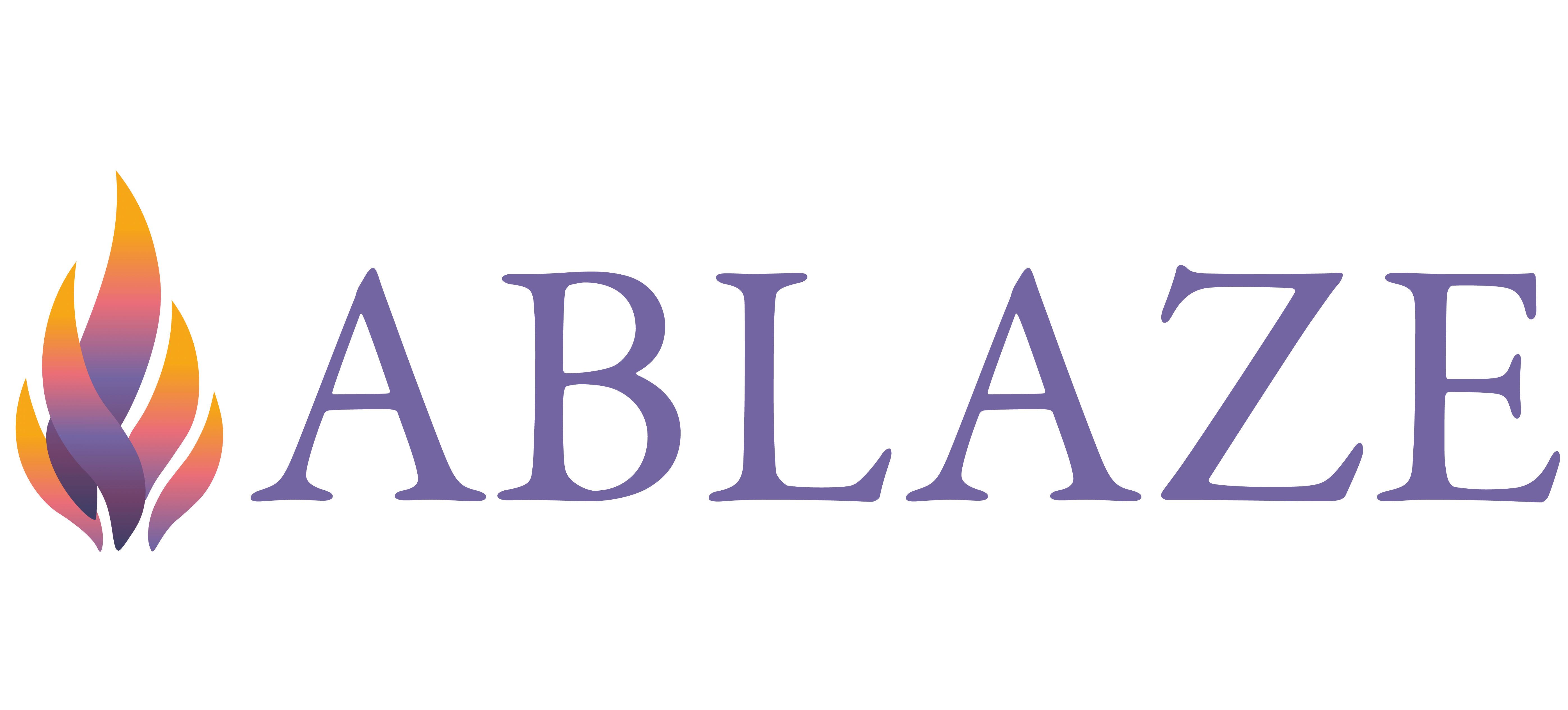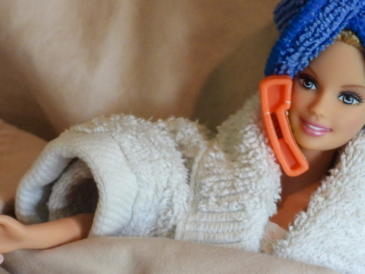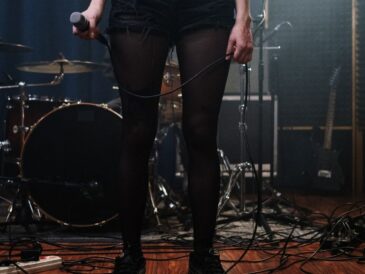Photos taken by Madison Russell
There is a certain magic in protesting. Sure, you are there primarily to face injustice, but being in the crowd, meeting new people and making your voice heard is something that I have only experienced in organizing.
If you were on campus April 18th and 19th, you may have seen the “God Hates –” group, who were hard to miss with their gaudy signs and microphone. Allegedly, they came to spread their version of Christianity, but from what I saw, I doubt they were successful at anything except for admonishment from students.
When I first passed by PED and decided to stay for a while, I didn’t know that this “event” would define the rest of my day. I described it more than once as a car crash you can’t look away from— grotesque and devastating but alluring. Over time, more students walked past and decided to stay. Before long we were a group not just observing the spewing of hatred, but actively combating it.
Instruments were brought out, a saxophone, a French horn and a guitar. There was someone sitting before the “preachers” finishing a painting. Students combatted homophobia through love, hugging and kissing others they may have not even known before this day. There was cheering, the band played rocky top and a lemonade stand had been set up.
It wasn’t all joyful celebrations, however, as those we had come to protest simply became louder as we attempted to drown them out. Shouts of “God hates homos” and “you all will burn in Hell” were coupled with accosting remarks towards anyone appearing non-white. In one instance, a group of women in hijabs walked by to a truly classy statement of “Hey Muslims, how does it feel to kill!”
Kinley Sanderson, a student I spoke to remarked, “I woke up this morning to go to class, not to be called a slur on the way there.”
Myself and others attempted to use their literature to communicate with them. I heard more than one mention of Matthew 7:2 “Do not judge, for you too will be judged,” (ESV). However, This fell on deaf ears and the hate speech only continued.
Is it possible that protesting this “event” only fed into their need for attention? Yes, it is likely it did. However, I argue that showing LGBTQIA+ and BIPOC students that there are many on campus who will stand up in their support far outweighs whatever “satisfaction” gained by the three calling for exclusion.
Another student I spoke to, identified as Alia told me, “It's ironic that these people who are sinning are the ones calling everyone else a sinner and stating they are perfect.”
The reference to these individuals claiming they are perfect was something I witnessed time and time again. One of these individuals, I’ll refer to as “blue shirt” (as he refused to give me his name) claimed to be perfect, even more pure than Jesus Christ himself, and referred to himself as the “king.”

At the height of this chaos, two students offered a powerful perspective on the power of taking a stand together.
Bryce Rivers and Arjan Bakshi, both freshmen, were some of the most involved protesters present. I witnessed them confronting blue shirt and the others directly and confidently lifting up the voices of minorities to be heard by the group.
Rivers told me he was there to “protest hate speechers,” but noted that “it’s fun egging them on but this runs deeper than that. Everyone here is in support of one another, couples are kissing and even other Christians have come to oppose this message of hate— it’s a beautiful thing.”
Bakshi expanded on this stating, “I have never felt closer to my school than I do right now. I feel so connected to all around me and I feel loved.”
I think that these quotes perfectly encapsulate the importance of protesting for the community and the individual. Protesting makes you feel powerful and seen. You are directly making a difference. If people such as these are able to spew hate with no pushback, rage and exclusivity will color the world, which as college students we are trying to make an impact on.
As the day went on and the sun began to painfully invade my shoulder blades, the protest showed no signs of slowing down. I decided to seek out comments from the three individuals whose comments could be heard only through a microphone.
Only one was willing to speak on the record, but refused to share his name. What he told me was dehumanizing and made my skin crawl. However, it’s important to showcase exactly what these three were willing to say directly to my face— when he wasn’t staring at my chest.
What follows is his exact quote, which I have not altered in any way.
[Me]: “Can I ask for a comment on the record? I am a member of the Feminist magazine here on campus?”
[Him]: “Well - stop doing that.”
[Me]: “Why? What should I do instead?”
[Him]: “Women should be keepers at home so go home find a godly man, make lots of children, use the baby bottles on your chest that God gave you and fulfill your destiny.”
I have experienced remarks such as this before, since I was twelve years old. Men have commented on my body in catcalling, direct accostments and other humiliations for close to a decade. I have been made to feel small, insignificant and nothing beyond an object to satisfy men. Even teachers have taken part of this, memories of their words sketched onto the lobes of my brain with a laser, so precisely I can even remember every detail of each instance.
This does not mean I am desensitized to harassment.
Protesting is fun; it forges a sense of camaraderie, but it is moments such as this where the yelling is drowned out and I feel like screaming at the top of my lungs that reminds me we are far from an equitable society. These are the moments that remind me why I protest.





